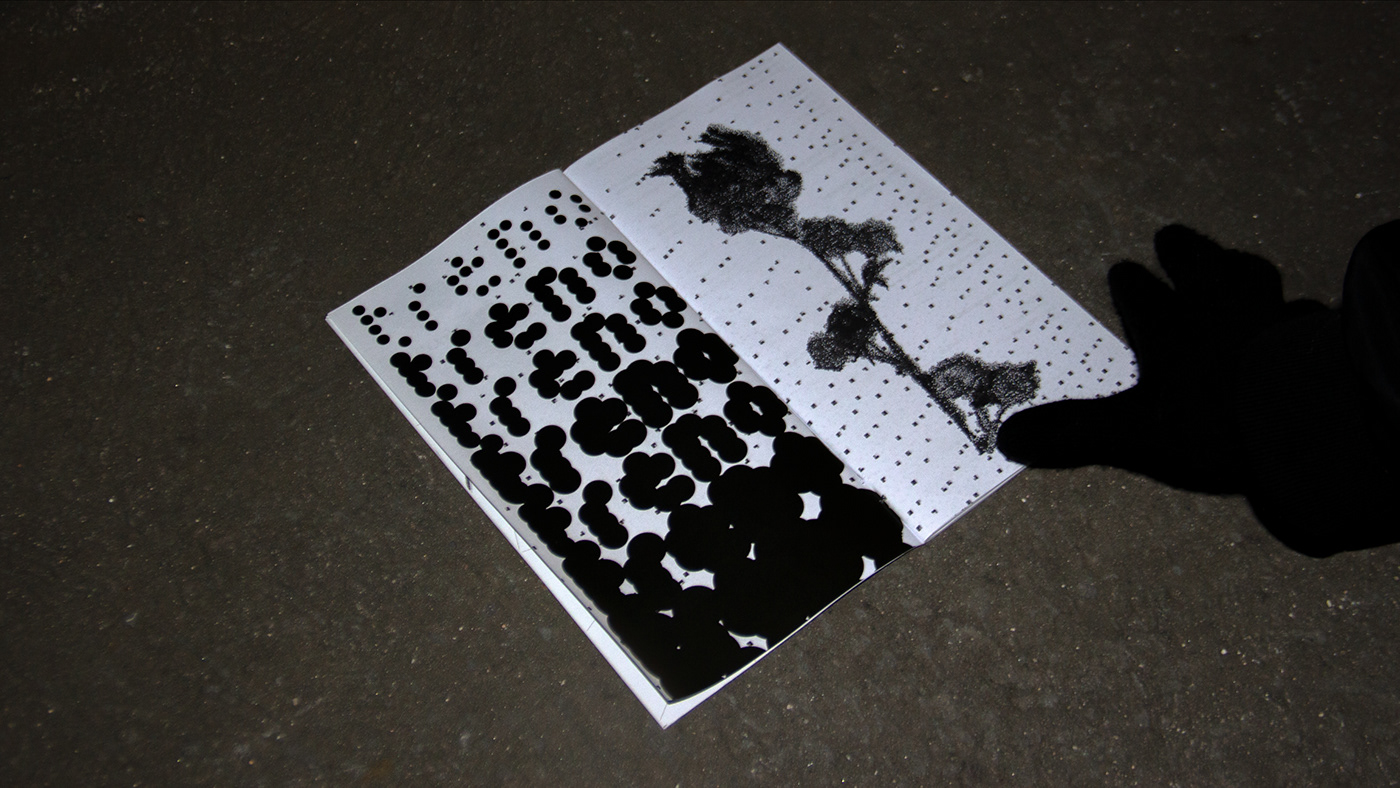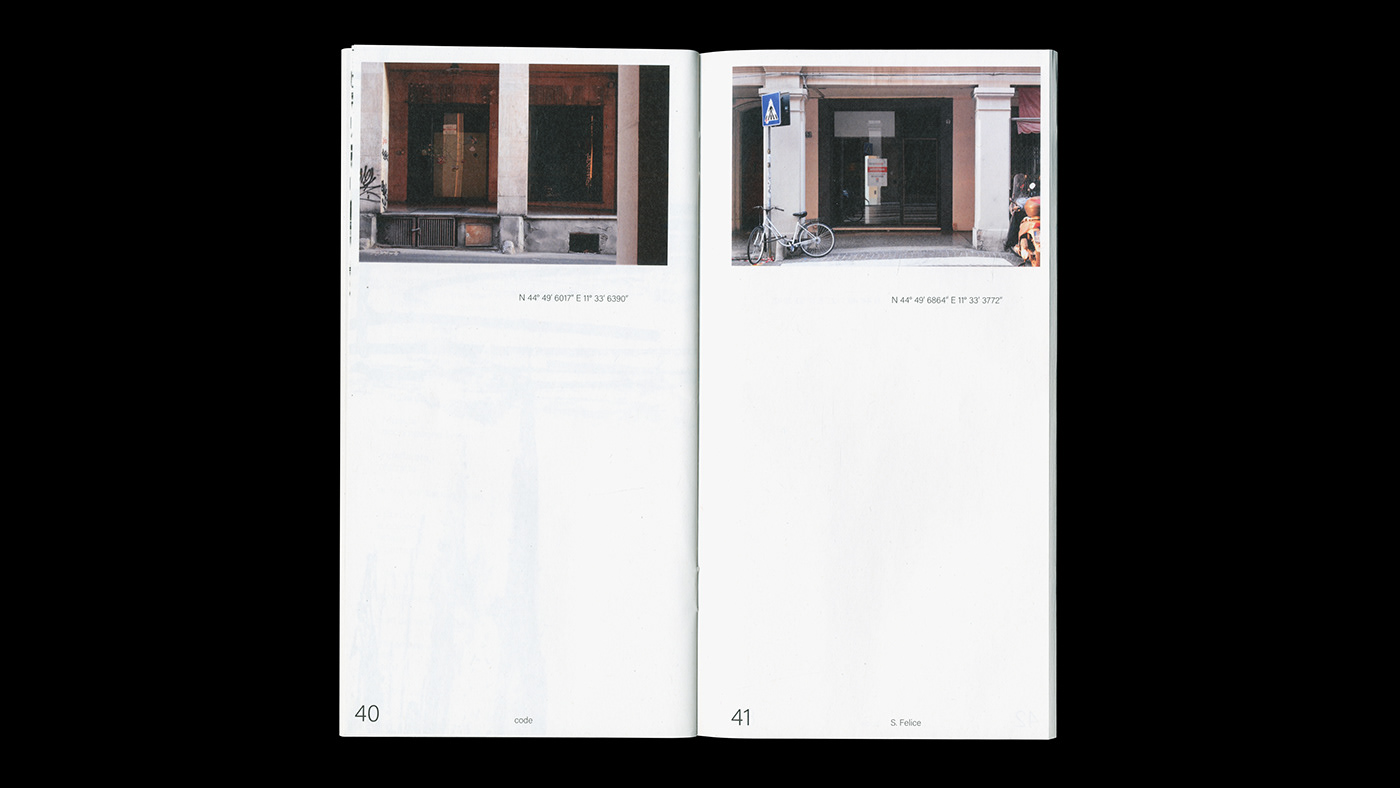



























CODE is a monographic publication that presents and explores the closure of neighbourhood shops through a specific path that aims to leave several interpretations open. The project has a twofold purpose: on one hand, it guides the reader to precise points; on the other, it does not delimit pathways, it does not limit us to a single mode of fruition, of reading. Both intentions guide us and lead us astray. Precisely because of this contradiction, the title becomes the union of the two terms: “paths” and ‘getting lost’.
Within it, some of the great issues of today’s society, which lives on acceleration and fictitious realities in which it is not always easy to recognise what is in front of us. What is presented in front of us. Marc Augé’s non-places was the starting point for the elaboration of some questions that have then turned out to be the cornerstones of the project: “is it really true that we know the space in in which we live?”, “are we able to take in all the new influences offered to us by distinguishing their origin?”. These reflections were then placed in a circumscribed context: as well known as unknown, the city of Bologna was the protagonist of this work.
The phenomenon of shop closures is of fundamental importance as the rapid closure of these spaces is challenged by the changing of consumption practices and by factors that, in some cases, affect the territory geographically. CODE collects three testimonies in three different areas of the city: a post-war building located in the suburban district of Barca, called the “Train”, via San Felice and via San Vitale. These three areas do not just represent a route from the periphery to the centre, but contain within them voids and, at some point, the voice of a territory.
The layout opens with a map of the city that is inspired by the thought of the philosophical-sociological and artistic movement of the Situationist International which, among its different practices, worked around the concept of drift; this map is meant to be an invitation to get lost to let oneself be transported by certain elements that emotionally emerged from the territories studied: some leaves and flowers, a construction site net and a pen. On a closer look, the place declared itself and CODE gathered its vision in the spaces of Treno and San Felice, and then brought back the voice of the shopkeepers of via San Vitale who do not want to close their shops.
Within it, some of the great issues of today’s society, which lives on acceleration and fictitious realities in which it is not always easy to recognise what is in front of us. What is presented in front of us. Marc Augé’s non-places was the starting point for the elaboration of some questions that have then turned out to be the cornerstones of the project: “is it really true that we know the space in in which we live?”, “are we able to take in all the new influences offered to us by distinguishing their origin?”. These reflections were then placed in a circumscribed context: as well known as unknown, the city of Bologna was the protagonist of this work.
The phenomenon of shop closures is of fundamental importance as the rapid closure of these spaces is challenged by the changing of consumption practices and by factors that, in some cases, affect the territory geographically. CODE collects three testimonies in three different areas of the city: a post-war building located in the suburban district of Barca, called the “Train”, via San Felice and via San Vitale. These three areas do not just represent a route from the periphery to the centre, but contain within them voids and, at some point, the voice of a territory.
The layout opens with a map of the city that is inspired by the thought of the philosophical-sociological and artistic movement of the Situationist International which, among its different practices, worked around the concept of drift; this map is meant to be an invitation to get lost to let oneself be transported by certain elements that emotionally emerged from the territories studied: some leaves and flowers, a construction site net and a pen. On a closer look, the place declared itself and CODE gathered its vision in the spaces of Treno and San Felice, and then brought back the voice of the shopkeepers of via San Vitale who do not want to close their shops.
CODE is therefore a work that wants to bring a closer look to the importance and the attention we pay to what we have close to us, rebelling at the same time against a system that leaves everything a bit hidden, which is why it is being collected on the streets, near to large chains and tourist information points.
Bachelor project: Aurora Pelaggi
Supervised: Carlo Vinti, Chris Rocchegiani
Pages: 68, self-covered
Typography: Acumin by Robert Slimbach
Paper: Cyclus recycled 80 gr
Typography: Acumin by Robert Slimbach
Paper: Cyclus recycled 80 gr
Thank you!
Follow me on Instagram










